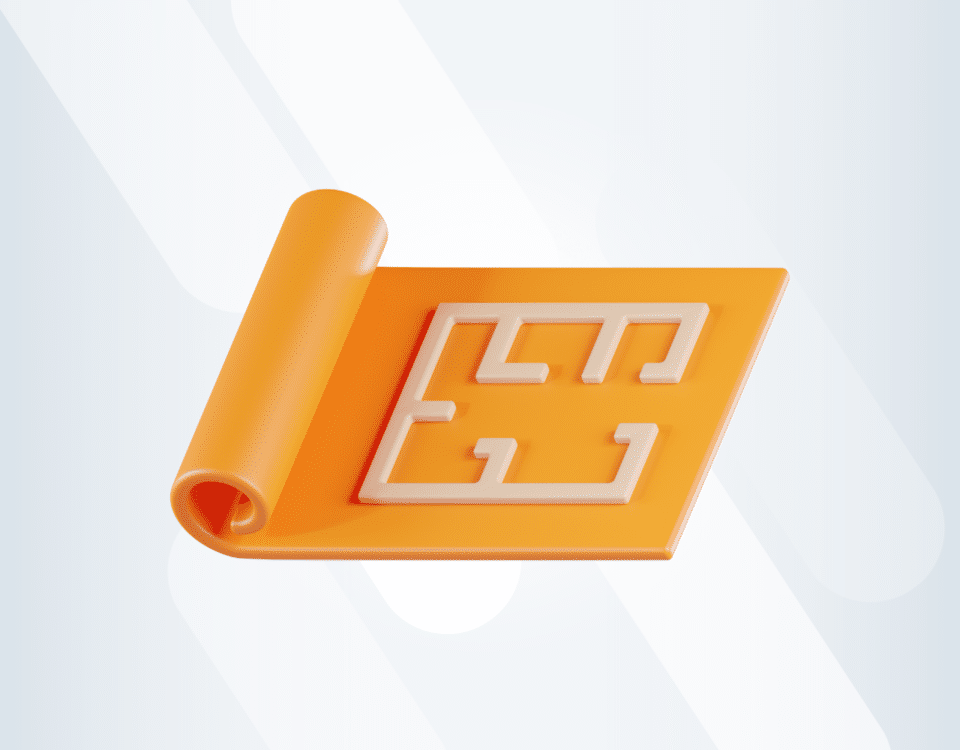Construction Tips, News & Best Practices
Construction Industry Crisis: Companies Going into Administration
In the second half of 2021, the construction industry has seen a rise in companies facing insolvencies and going into administration, with hundreds of people losing jobs and projects getting stuck. What are the reasons for this disquieting trend? Is there something to be done to prevent it? We explore these questions in the article.
After a very difficult 2020, when many businesses were closed down due to the strict restrictions, it seemed that in 2021 the construction industry would recover fast and get back on its feet. Unfortunately, throughout the year, we could observe a rise in the worrying trend of insolvencies in the industry, with many companies forced to go into administration.
The number of construction firms' insolvencies increased by almost 80% by November of 2021 when compared to the same period of time in 2020. It is predicted that the trend will continue into 2022, with some reports mentioning that the UK construction industry’s insolvencies could increase by up to 25% during the first half of 2022.
Companies in difficult circumstances over the past 2 years, hundreds of employees made redundant, economical losses, and stagnation of many projects are all great tragedies that are and will continue affecting many people and businesses in the UK. Understanding the situation, its causes and consequences can make us better equipped to deal with a tough reality of the industry - let’s break it down and look for solutions.
What Does “Going into Administration” Mean?
The administration is one of formal procedures a company can take in case of insolvency. Insolvency happens when a business doesn’t have sufficient assets to cover its debts, or is unable to pay its debts when supposed to.
PwC UK:
“Administration stops any legal action or process against a company from proceeding unless the Administrators or the English Court give permission. This means that creditors can’t take any legal action against a company in administration to recover outstanding amounts.”
It happens in one of 3 ways: by an order of the court, an appointment by a qualifying floating charge holder or an appointment by the company or its directors.
How does it work?
The aim of the Administrator is to try to resolve the company's issues while still keeping it going as a business. If they fail at that, they strive to achieve a better result for the company’s creditors than in case the company was liquidated (without first being in administration). In case that fails as well, the Administrator acts by realising property in order to make a distribution to one or more secured or preferential creditors.
The Administrators take over the control of day-to-day company management and begin the process by reviewing the company’s situation to determine if there is enough support to continue to trade the business.
Why Are UK Companies Facing These Problems?
Now that we know what Administration is and how it works, let’s talk about the main causes of the rise in numbers of UK’s construction companies going bust.
-
01
Cash Flow Issues
Cash Flow issues were always one of the biggest causes of insolvencies in the construction industry and the result of unavoidable lag between work and payment. It is extremely hard to ensure liquidity and manage cash flow when we take into account the payment waiting time of 40-60 days that in some cases is even longer! Pandemic has definitely made the situation worse - only 9% of contractors are being paid on time, which means a decrease of 60% compared to 2020!
Cash Flow issues further reduce profits by causing delays and forcing companies to take out loans. No wonder 97% of respondents in the Levelset Report on Cash Flow & Payment Report claimed that they had experienced stress over cash flow problems and late payments.
Read more about Cash Flow Management!
-
02
Lack of profitability
On a highly competitive market, where oftentimes the lowest price decides whether or not you win, the tendering process results in companies performing work with the lowest possible profit margin. Two-thirds of those surveyed in the Building Magazine claimed that their margins were lower than 5%.
In such circumstances, every delay or unexpected rise of costs, like rising material costs or currency fluctuations means that contractors have crushing chances for any profit from the project.
-
03
Material and labour shortages
According to the FMB State of Trade Survey for Q3 2021, 82% of builders were forced to delay their jobs due to the lack of materials in 2021 and 60% had to pause their work due to the lack of skilled tradespeople.
Construction Leadership Council (CLC) said that despite seeing signs of improvement in some product availability in the construction sector, supply challenges continued to affect many essential construction materials, leading to further delays, higher costs and a fall in project profitability.
Due to the aging workforce, the lack of new talents in construction and a significant decrease in the EU construction workers after Brexit, the industry will still have to deal with labour shortages and subsequently, with its high costs.
Check out our article on Construction Materials Cost Crisis.
-
04
The Domino effect
Finally, as construction businesses and suppliers are tightly connected to deliver projects and receive payments, the fall of one of them can cause serious problems for the others. If, for example, a general contractor on a project goes bust, it can leave its subcontractors and suppliers without payment. If they too operate on the verge of cash flow issues, this lack of payment can lead to big financial problems or even, the loss of liquidity, which can, ultimately, result in insolvency.
How Can We Support You?
Archdesk was born to face the exact challenges described above. Having experienced the often tough and difficult reality of managing a construction company in the UK, our founders connected by actively looking for solutions possible thanks to the application of proper construction management software.
Supporting companies in overcoming the challenges and giving them tools to realise their full potential has always been at the heart of our actions.
We provide a powerful construction management platform that can support you in gaining better control over your whole company, so that you can be sure your liquidity is not endangered. Our software can support you in controlling your finances, managing construction materials and suppliers and it can enhance your project management, which could lead to limited delays and reduced costs by making the best use of your assets.
Our specialists are here to answer any questions and to introduce you to the solutions that could be very helpful for your company’s needs.
What Can Be Done?
When looking at the main causes of insolvencies among construction companies, what seems to be the key is getting hold of cash flow management and introducing some strategies to decrease the negative impact of materials shortage and fluctuating prices.
There are multiple strategies to manage your cash flows most effectively. To name some of the solutions, you could consider:
-
Investing in a proper cash flow management training for your project manager
-
Including payment terms in your contract to avoid late payment
-
Encouraging early payments with a discount - as every business is different, you would have to determine if it doesn't reduce your profit too much
-
Forecasting and planning your expenses and cash flow - digital financial management systems are a great tool for you to get an overview, better understanding and control over your cash flows
As for the material cost crisis, we have a whole article devoted to exploring different ways of managing the situation - we encourage you to check it out!
Rising Cost of Materials in Construction: How to Deal with It?
Don’t hesitate to contact us if you need more information. We are here for you!
You might also like
February 29, 2024 • 7 min read
Utilizing the human-first approach to construction projects to drive higher results.
July 3, 2023 • 6 min read
8 Best Construction Drawing Management Software (2023): A Comprehensive Guide
Find all the information you need about the construction drawing management software tools available on ...June 14, 2023 • 6 min read
The 11 Best PlanGrid Alternatives (2023)
Looking for a great alternative to PlanGrid software? Check out the 11 best construction software tools ...June 14, 2023 • 4 min read
How to win at CIS 340 and make taxes a breeze
CIS 340 is a legal obligation for contractors. But getting it right isn’t straightforward. Want ...





